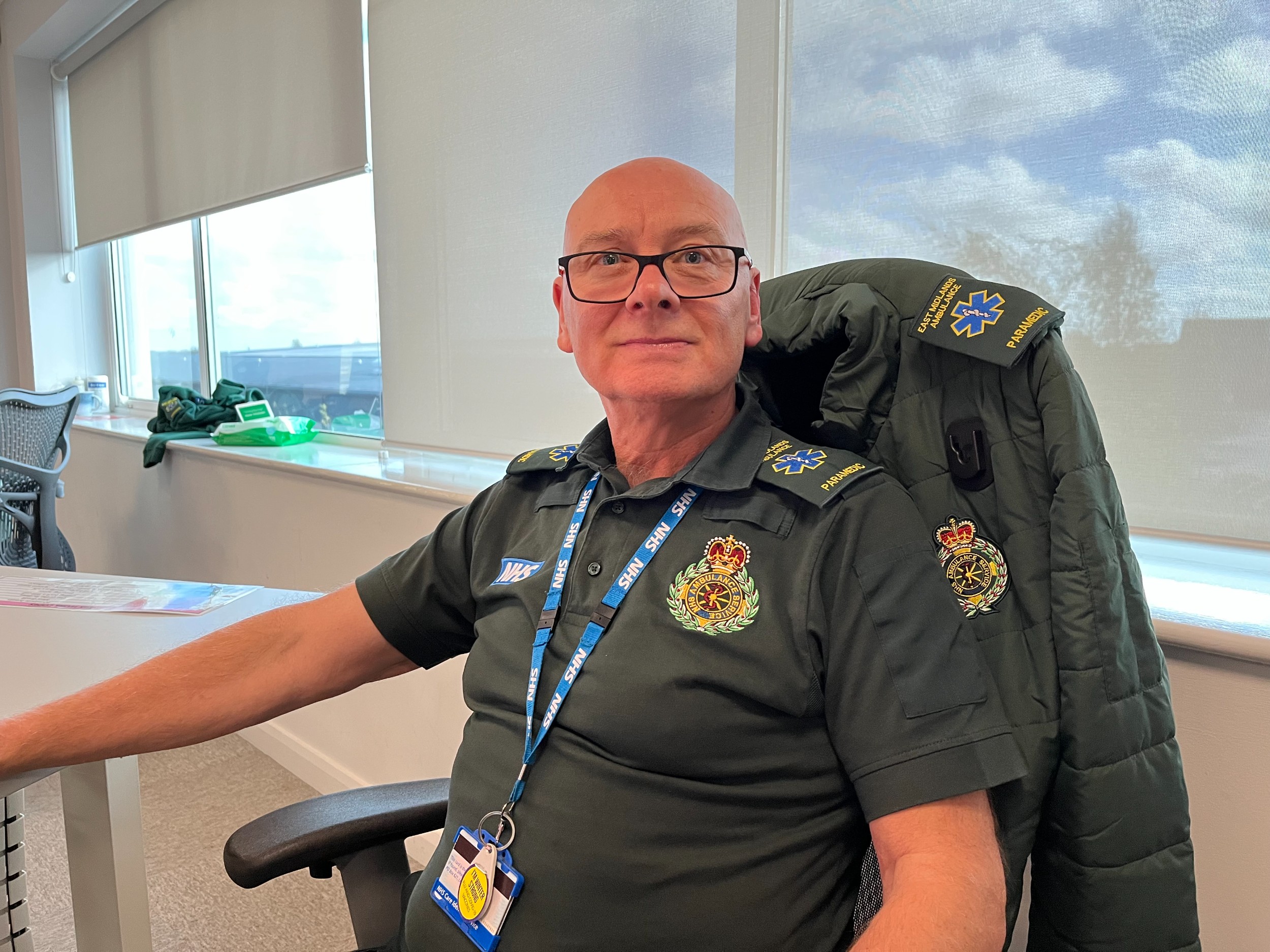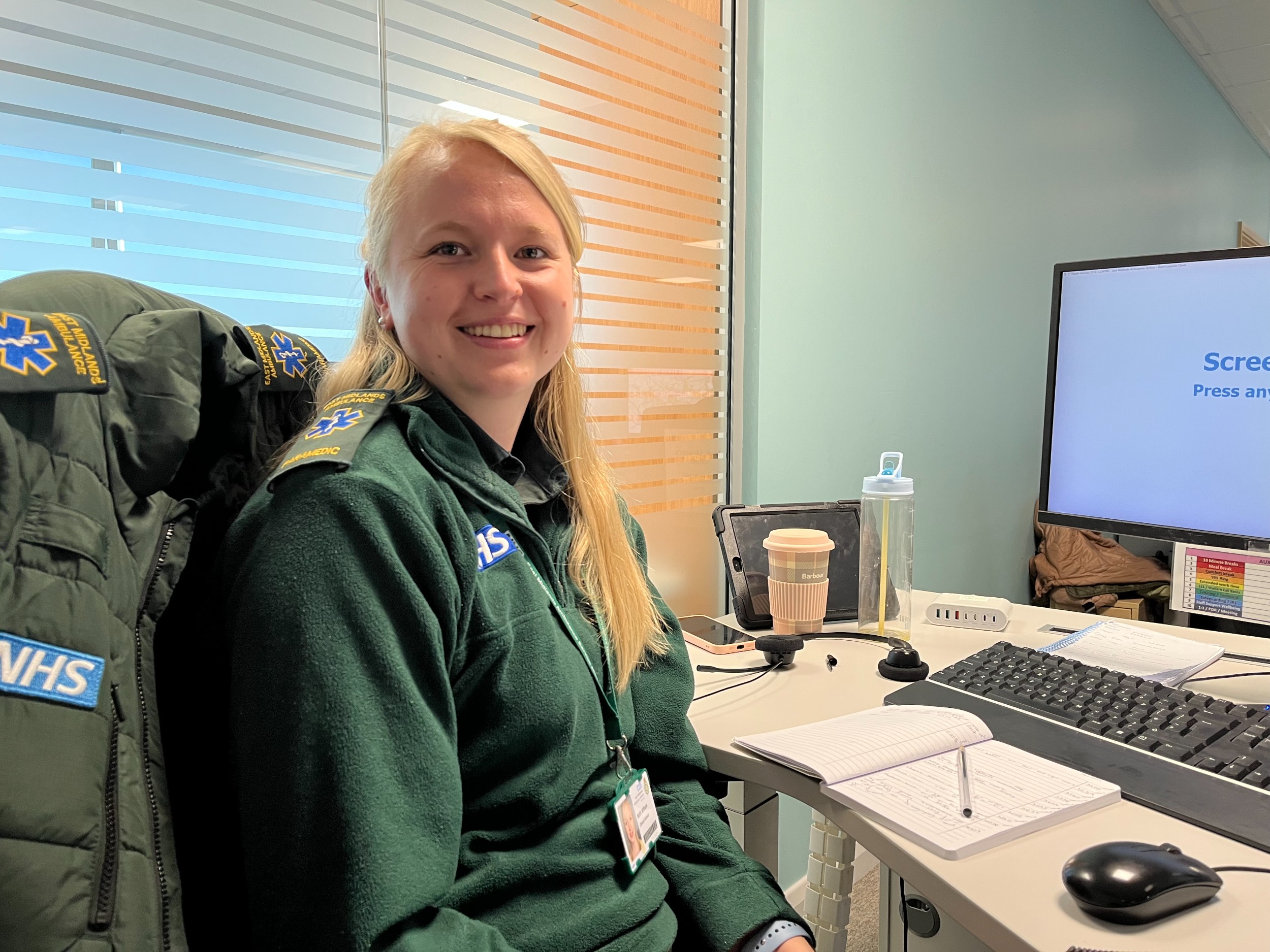In response to rising pressures on our emergency service, we introduced key changes to get more ambulances to patients who need them most. By directing callers to the most appropriate care, we keep more crews available to respond to immediately life-threatening emergencies.
Our Clinical Assessment Hub, operating across multiple sites and supported by home-based clinicians, play a key role in this. They work tirelessly to support patients to get the most appropriate care for their needs. Sometimes, that means guiding them to alternative services such as self-care, community pharmacy, and urgent treatment centre or general practice.
The process begins with clinical navigation. Nurses or paramedics review some 999 calls to decide if an alternative service could be more appropriate. This ensures patients receive care faster.
Paul Jevons is currently working in a temporary leadership role as a Clinical Commander, while continuing to be part of the Clinical Navigation team. He uses his skills, knowledge and professional judgement from 34 years’ experience in the ambulance service to determine the best course of action.
Paul said: “If a call comes in about a concern for someone’s mental health, I can refer it directly to our Mental Health Practitioner team for a specialised assessment, instead of it waiting for an ambulance response.
assessment, instead of it waiting for an ambulance response.
“This means the patient is getting the urgent care and support they need faster. They can find out more information about the person to determine next steps."
Paul explains how his role helps streamline care across the wider NHS system too, stating: “Sometimes, when someone calls 999 they may need to go to hospital for further treatment or investigations, but don’t need to go to a busy Emergency Department.
“I can use the tools we have available to book patients a hospital appointment, instead of signposting them to their GP to make the referral, helping them to get the care they need faster.”
Navigators like Paul can also access patient records to provide comprehensive care. For frequent callers, cases may be referred to our Frequent Caller team for further education, support and signposting for the person calling.
Paul added: “This holistic approach addresses immediate needs while reducing future 999 calls when there is not an immediate risk to life.
“This means I’m not just dealing with calls as they happen, but identifying ways to reduce the volume of calls we receive for incidents where life isn’t on the line.”
If needed, calls from clinical navigation are passed to clinical assessment. Here, clinicians conduct detailed phone assessments to determine the best course of action.
Beth Taylor, currently a Clinical Commander in the team, explains her role as a Clinical Assessor within the Clinical Assessment Hub.
 Beth explains: “My day can involve providing reassurance and advice to patients, empowering them to better manage their condition without the need for an in-person ambulance response.
Beth explains: “My day can involve providing reassurance and advice to patients, empowering them to better manage their condition without the need for an in-person ambulance response.
“After carefully assessing my patients, I may recommend self-care at home, consulting their GP, or connecting with other NHS community services better equipped to support them, instead of sending an emergency ambulance.
“I can use Clinical Assessment Services (CAS), staffed by nurses and doctors in the community, who can prescribe medications for urgent health conditions. For example, antibiotics for infections.”
While observing Beth, we saw a range of outcomes from the calls she assessed. Some callers were referred to CAS, others were identified as needing either an ambulance response or another kind of follow-up. All were managed in a way that reflected the clinical needs of the caller at that moment.
Beth supported a crew who were already on scene with a patient in a mental health crisis. She did this by reviewing the patient’s medical history to support the crew with their actions and confirmed the best next steps for their personalised care.
Thanks to the work of Paul, Beth and their colleagues – based in our 999 control rooms and across multiple sites – these innovations are helping to free up more ambulances for life-threatening emergencies. At the same time, patients with urgent but less critical needs are directed to appropriate services, receiving faster and more effective care.
Ben Holdaway, Director of Operations at East Midlands Ambulance Service said: “This approach reflects our commitment to putting patients first and providing the best possible outcomes for everyone who relies on our service.
“These improvements to our clinical navigation and assessment processes are an important part of delivering the national Urgent and Emergency Care Plan.
“By working closely with our NHS partners, we’re reducing pressure on emergency departments, improving ambulance response times, and making sure patients get the care they need, when and where they need it.
“Our Clinical Assessment Hub plays a vital role in safely managing the high number of calls we receive. They continue to work hard behind the scenes to ensure our patients are prioritised effectively, so our crews can reach those who need emergency care as quickly as possible.”
Inspired by our Clinical Assessment Hub’s impact? We’re recruiting registered clinicians – join us to help deliver outstanding patient care. Learn more and apply on our website